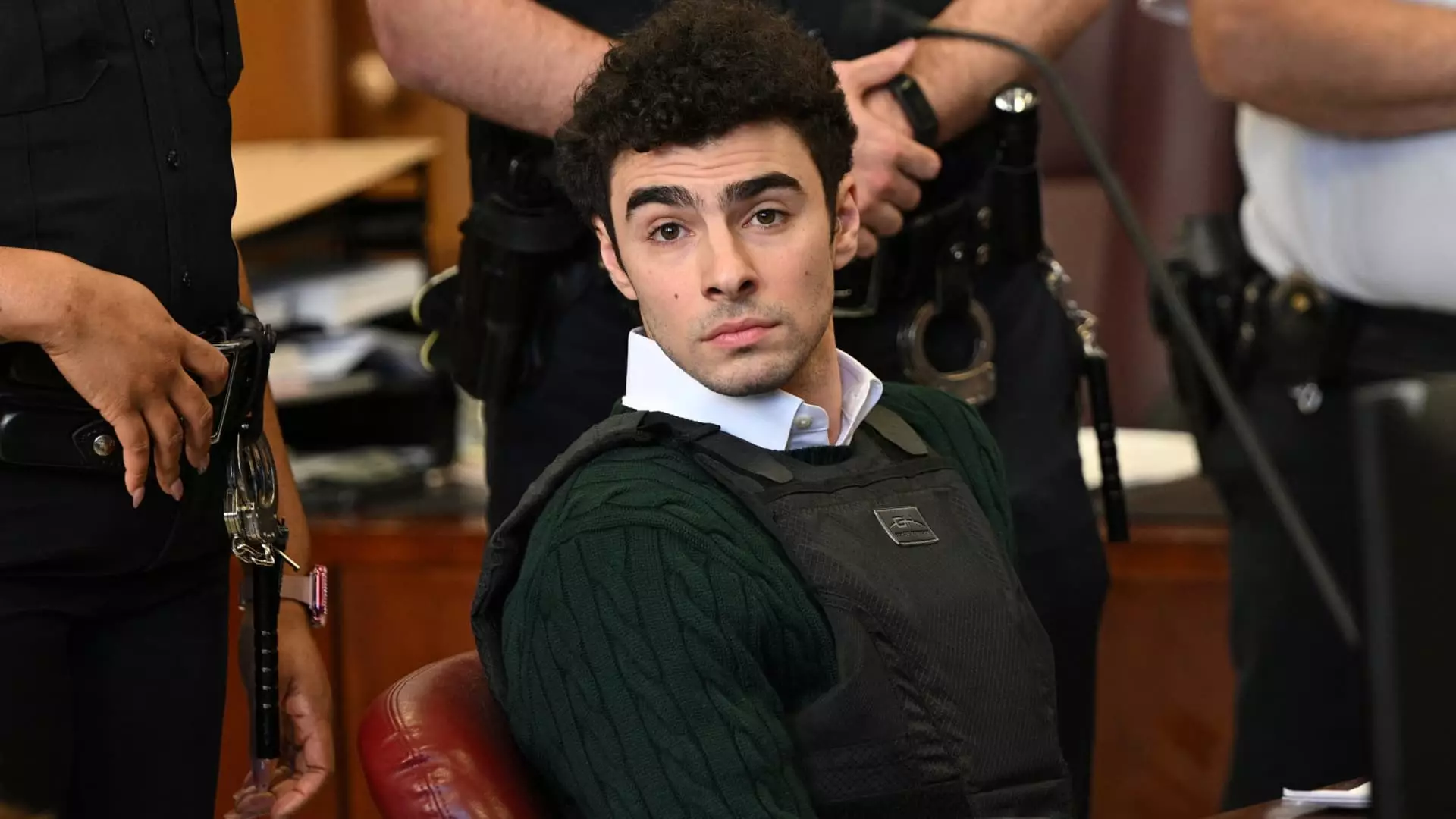The case against Luigi Mangione, accused of murdering UnitedHealthcare CEO Brian Thompson, unveils a grim and unsettling reality that the intersection of ideology and violence can produce horrifying consequences. As a society, we are often lulled into a false sense of security, believing that the forces of rational discourse and peaceful protest can adequately challenge systemic injustices. Mangione’s tragic actions starkly challenge this comfortable narrative, slinging a grotesque specter of violence onto the stage of ideological confrontation.
On December 4, Thompson, a prominent figure in the health insurance industry who was also a father, was gunned down in broad daylight as he entered a hotel. Mangione’s alleged motivations, rooted in a disdain for the health insurance industry, illustrate not only a deeply personal vendetta but also highlight a distressing trend: a growing acceptance, in certain circles, of violence as a legitimate tool for enacting social change. This is not merely a criminal case; it is an alarm bell for our society, where ideological extremes can lead to devastating outcomes.
The Threat of Ideological Extremism
The prosecutors’ assertion that the murder was ideologically motivated raises more than just legal questions; it injects legitimate fear about the potential for violence stemming from ideological extremism. In their filing to the court, they pointed to evidence suggesting that Mangione’s actions were not spontaneous but rather calculated, with aspirations to galvanize a political uprising against the health insurance industry. Calling his assassination of Thompson a premeditated act entails a chilling dimension—the idea that individuals might believe that morally questionable acts can serve greater ideological purposes.
This case highlights a troubling truth: the weaponization of ideology can lead individuals down a dark path where they disregard the fundamental lesson that true change comes from informed engagement, debate, and empathy. Rather than working within the frameworks of democracy and civic participation, Mangione’s alleged actions represent a catastrophic failure to navigate dissent without resorting to violence.
The Role of the Justice System
As the case unfolds in New York federal court, disturbed yet alert citizens must contend with the implications of how the justice system handles such a grim scenario. The prosecution’s intent to pursue the death penalty has ignited heated debate over its ethical implications. On one hand, victims’ families argue for retribution and justice for Thompson. On the other hand, such severe measures evoke ethical dilemmas about the legitimacy and morality of capital punishment itself, particularly when used in response to acts of violence influenced by ideology.
U.S. Attorney General Pam Bondi’s fervent allegations of Mangione’s cold-blooded impulse to kill encapsulate the heated emotional backdrop surrounding the case. Her commentary poses a risk to the integrity of the judicial process; it draws into question the fairness of Mangione’s trial. In this politically charged atmosphere, where the grief of victims is a potent weapon and the media is a double-edged sword, it becomes all the more vital for legal proceedings to remain uncontaminated by sensationalism.
A Society on Edge
The broader implications of this case extend far beyond the courtroom; they unveil systemic fractures within our society. Mangione’s case is not an isolated incident but a reflection of an escalating cultural climate where people feel disillusioned and, in some instances, justified in resorting to violence. It forces a reckoning on how we as a community discuss contentious issues—what responsibility do we bear in fostering an environment where ideas can be vigorously debated without spiraling into hatred and brutality?
Mangione’s alleged ideology is representative of a dangerous dialogue within our society—a dialogue that seeks to invalidate the lives and livelihoods of those associated with industries deemed as oppressors. While deep-seated criticism of corporate greed and systemic shortcomings are warranted, they cannot transform into justifications for acts of violence. It remains essential to maintain a civil discourse rather than sow the seeds of chaos.
Through the lens of Mangione’s disturbing alleged crime, we are compelled to interrogate how we engage with ideas and the depths to which ideological fervor can plunge individuals. If we do not address this fundamentally flawed approach to dissent, we may witness more tragic stories unfold, echoing the despair of a society that fails to find its voice through peaceful means.


Leave a Reply